Gearbox Failure
Escape Gearbox Failure: Enter Your Registration Now for a Quote and Sell to We Buy Many Vans in a Breeze!
If your van has experienced a gearbox failure, it’s a significant issue that requires immediate attention. Gearbox failures can result in loss of power, difficulty in shifting gears, and even complete transmission breakdown. To avoid costly repairs and inconvenience, it might be time to consider selling your van to We Buy Many Vans.
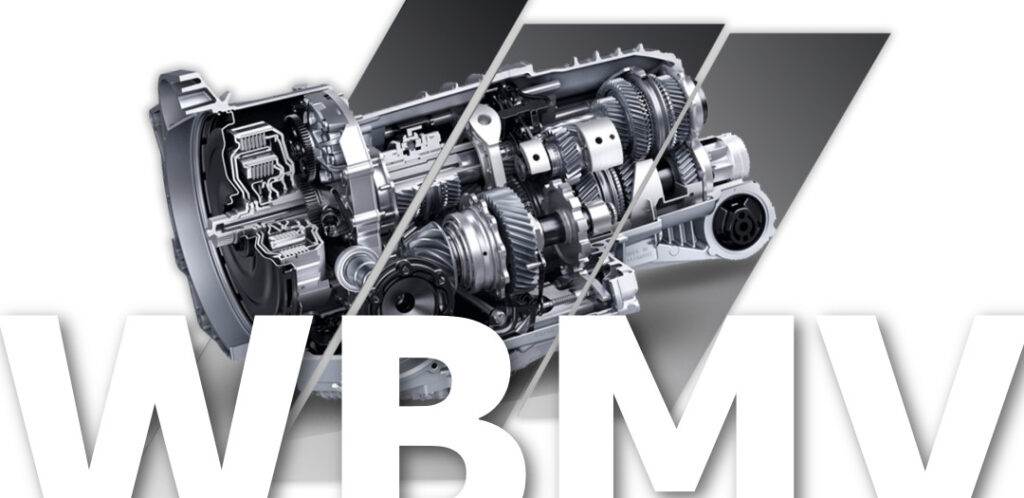
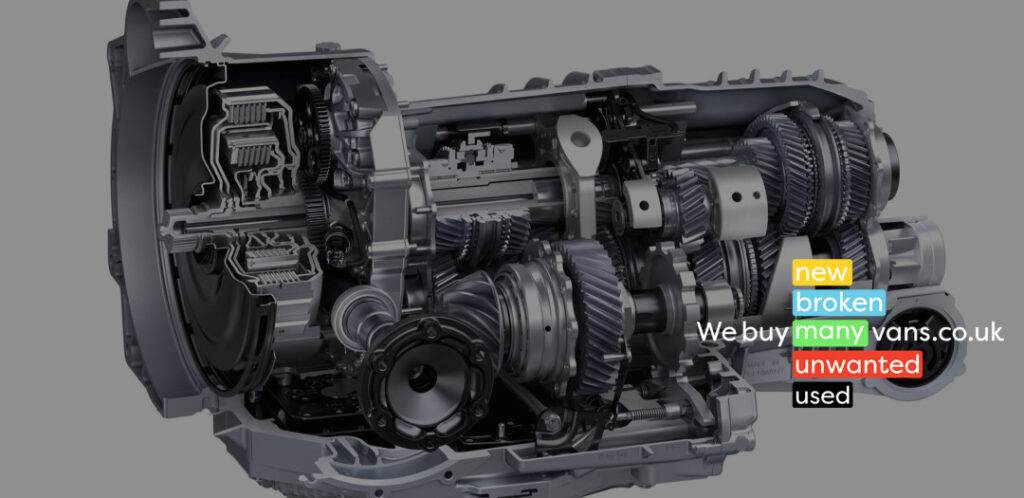
We understand the challenges of dealing with a faulty gearbox and are prepared to offer you a fair and competitive price for your van. Our team of van specialists will handle the process efficiently, ensuring a smooth transaction. Don’t let gearbox failure hold you back – sell your van to We Buy Many Vans and move forward with peace of mind.
Understanding the Common Causes of Gearbox Failure
Gearbox failure is a common issue that vehicle owners face. There are several reasons why gearboxes fail, including lack of maintenance, wear and tear, and overloading.
A gearbox is an essential component of a vehicle’s powertrain system, responsible for transmitting power from the engine to the wheels. When it fails, it can cause significant problems for the driver.
One of the main causes of gearbox failure is a lack of maintenance.
Gearboxes require regular oil changes to function correctly. If the oil becomes contaminated or low in quantity, it can lead to increased friction between gears and cause them to wear out faster than usual. Over time this will result in gearbox failure if not addressed promptly.
Another reason why gearboxes fail is due to wear and tear caused by constant use over time.
This type of damage may occur gradually but eventually leads to total gearbox breakdown if left unchecked for too long.
The best way to prevent this type of damage from occurring is by performing regular inspections on your vehicle’s transmission system so you can catch any issues early before they worsen.
Lastly, overloading your vehicle beyond its capacity can also lead to gearbox problems as well as other mechanical issues such as brake failures or suspension problems due to added strain on these components when carrying heavy loads which could also contribute significantly towards causing further damage down the line if not properly managed or addressed immediately upon detection
Signs Your Gearbox is Failing and Needs Repair
Common Van Faults: One of the most common causes of gearbox problems is bearing failure. This occurs when the bearings that support the gears wear out or become damaged, causing excessive vibration and noise. If you hear a grinding sound coming from your gearbox while driving, it’s a sign that your bearings may be failing.
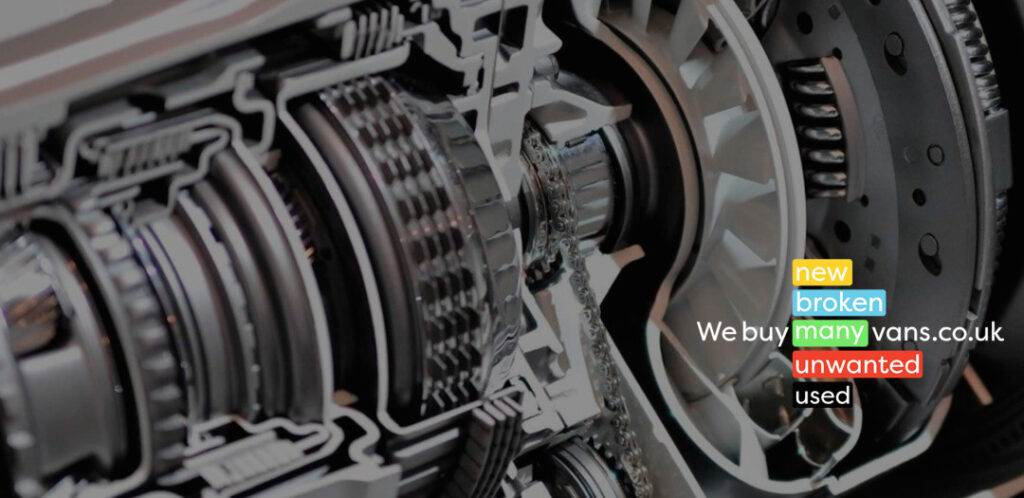
Another warning sign to look out for is leakage. A leaking gearbox can cause serious damage if left unchecked, as it can lead to low levels of lubrication and overheating. Check for any fluid leaks under your vehicle and take note of any unusual smells or burning odours.
Finally, keep an eye on your check engine light. While this could indicate a variety of issues with your vehicle, it’s often linked to gearbox problems such as slipping gears or failing sensors. If you notice any warning signs related to your gearbox, don’t hesitate to get it checked by a professional mechanic before further damage occurs.
The Importance of Addressing Gearbox Issues Early
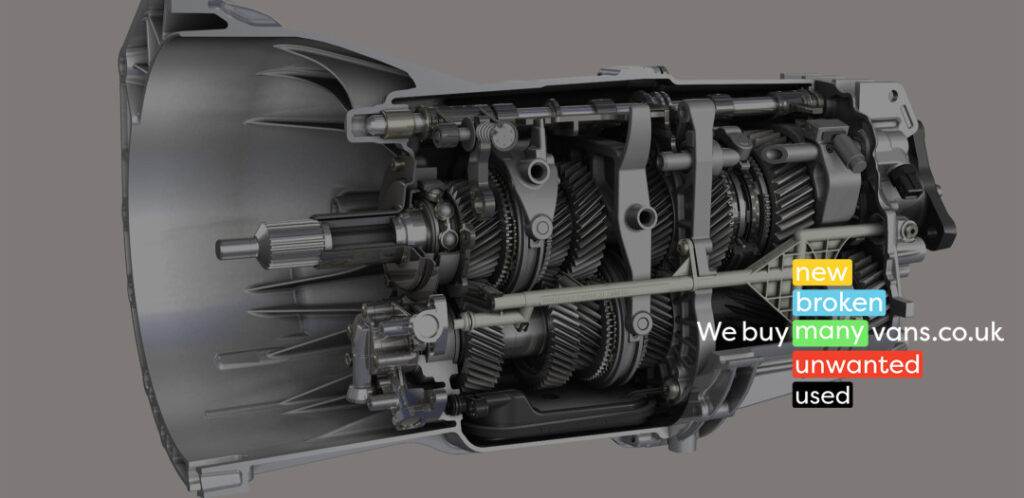
Addressing gearbox problems early is crucial to prevent further damage and costly repairs. One common cause of gearbox failure is bearing failure, which can lead to other issues such as leaks and worn gears. If you notice any unusual noises or vibrations coming from your manual gearbox, it’s important to have it inspected by a professional mechanic.
Ignoring warning signs of a faulty gearbox can result in more serious problems down the line. For example, a dragging clutch could cause excessive wear on the transmission and eventually lead to a failed gearbox. Regular maintenance and timely repairs can help prolong the life of your vehicle’s transmission.
If you suspect that your vehicle may be experiencing gearbox problems, it’s best not to wait until it fails completely before seeking out repair options. While some minor issues may be fixable with simple adjustments or lubrication, others may require more extensive repairs or even replacement of the entire unit. By addressing these issues early on, you’ll save yourself time and money in the long run while also ensuring safe driving conditions for yourself and others on the road.
Sell Your Van In Three Easy Steps
Hassle-Free Selling Process
01.
Get a quote
02.
Schedule a pickup
03.
Get paid
How to Tell if Your Gearbox is Damaged
One of the most common signs that your gearbox is failing is a grinding or whining noise when shifting gears. This can indicate issues with the gear teeth or bearings within the gearbox. If left unaddressed, these problems can lead to complete gearbox failure and costly repairs.
Another key indicator of gearbox damage is difficulty shifting gears or a slipping clutch. This can be caused by worn out synchronizers, damaged shift forks, or other internal issues within the gearbox. It’s important to have these problems diagnosed and repaired as soon as possible to prevent further damage.
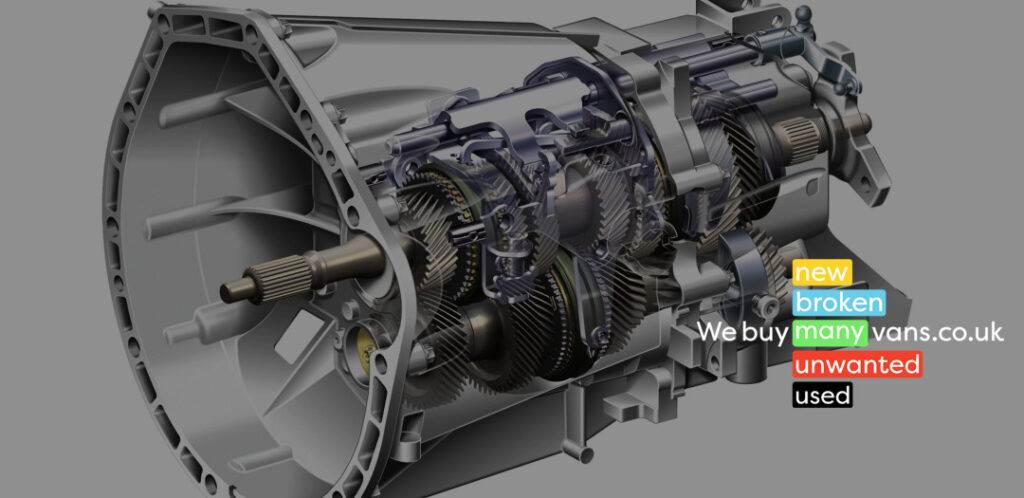
Proper lubrication is crucial in preventing many types of gearbox problems, including bearing failure and excessive wear on gear teeth. Regularly checking and changing transmission fluid can help extend the life of your gearbox and prevent costly repairs down the line.
Here are some bullet points to help you identify if your gearbox is damaged:
- Grinding or whining noise when shifting gears
Difficulty shifting gears or a slipping clutch - Worn-out synchronises, damaged shift forks, or other internal issues within the gearbox can cause difficulty shifting gears
- Gear teeth and bearings problems can lead to complete gearbox failure and costly repairs.
- Proper lubrication is crucial in preventing many types of gearbox problems, including bearing failure and excessive wear on gear teeth.
- Regularly checking and changing transmission fluid can help extend the life of your gearbox.
Symptoms of Gearbox Bearing Failure to Keep an Eye On
One of the most common gearbox issues is a faulty gearbox bearing. If you’re looking for warning signs, listen out for unusual noises like a clunk or buzz when changing gear. These sounds could indicate that your gearbox is damaged and suffering from a fault.
Another symptom of gearbox bearing failure is leakage. This can happen if the seal around the bearing fails, causing oil to leak out of the gearbox. Not only does this mean your vehicle will be low on lubrication, but it also means there’s likely damage to the bearings themselves.
It’s important to note that while gearbox bearing failure symptoms are often indicative of a problem with this specific component, they can also cause problems elsewhere in the transmission system. For example, if you continue driving with a faulty bearing, it could lead to damage in other parts of the common gearbox like gears and synchronizers which may result in more expensive repairs down the line.
The Role of Lubrication in Preventing Gearbox Problems
Proper lubrication is crucial to the health and longevity of your gearbox. Failing to maintain adequate levels of lubricant can lead to a host of problems, including gear wear, overheating, and eventual failure. Signs of a faulty gearbox may include difficulty shifting gears or strange noises coming from your transmission. If you notice any key gearbox failure symptoms, it’s important to address them early before they become major repair issues.
One way to prevent gearbox problems is by regularly checking your automatic transmission fluid (ATF) levels and ensuring that they are at the appropriate level. Low ATF levels can cause excessive friction between moving parts in your gearbox, leading to damage over time. Additionally, dirty or contaminated ATF can also cause significant damage if left unchecked.
If you suspect that your gearbox may have a fault, it’s important not to ignore the signs. Checking for signs of how to tell if there’s an issue with your transmission can help you avoid costly repairs down the line. Some common indicators that something may be wrong with your gearbox include grinding noises while shifting gears or a check engine light appearing on your dashboard.
In summary, maintaining proper lubrication in your vehicle’s gearbox means you can get more miles out of it without needing major repairs down the line. Addressing any potential issues early on is key – waiting too long could result in irreparable damage and require expensive replacement costs later on!
Addressing Gearbox Problems: Repair or Replacement?
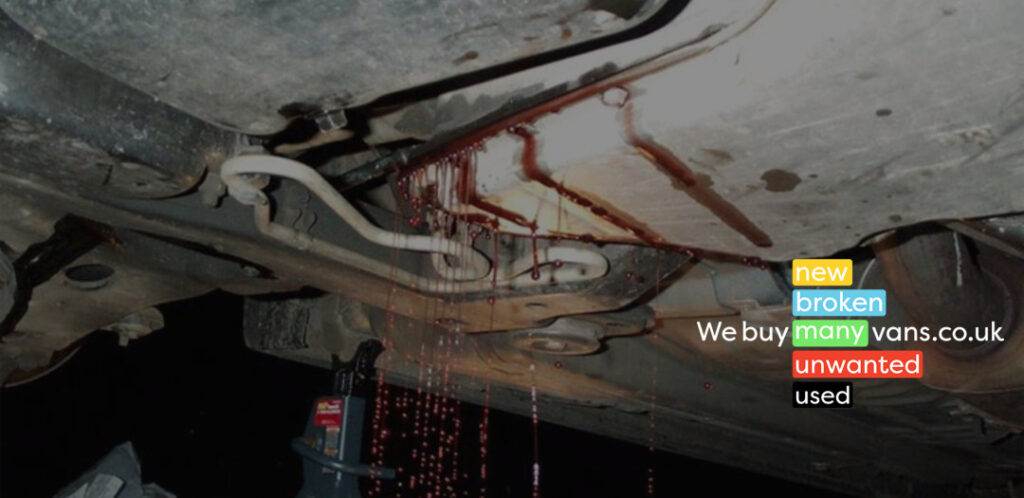
When faced with gearbox problems, the decision to repair or replace is not always straightforward. It depends on a variety of factors such as the age and condition of your vehicle, the extent of damage to your gearbox and how much you are willing to spend.
If you notice any irregularities in gear changes or hear strange noises like a hum or whine while driving, it may indicate that there is an underlying issue with your gearbox. Ignoring these symptoms can lead to more serious problems for later, resulting in longer downtime and higher costs for repairs.
A faulty gearbox means that moving parts are no longer functioning properly which could cause severe damage if left unattended. Knowing the signs of potential issues early on can save you from costly repairs down the line. Regularly checking your gearbox oil for any brown or black colouration can also be an indicator that something isn’t right within your system since clean oil should be amber-coloured. Vans nowadays have many sensors designed specifically to accurately detect problems within various systems including gearboxes so take advantage of them by being proactive about maintenance checks before they turn into bigger issues later on.
The Impact of a Faulty Gearbox on Your Vehicle and Wallet
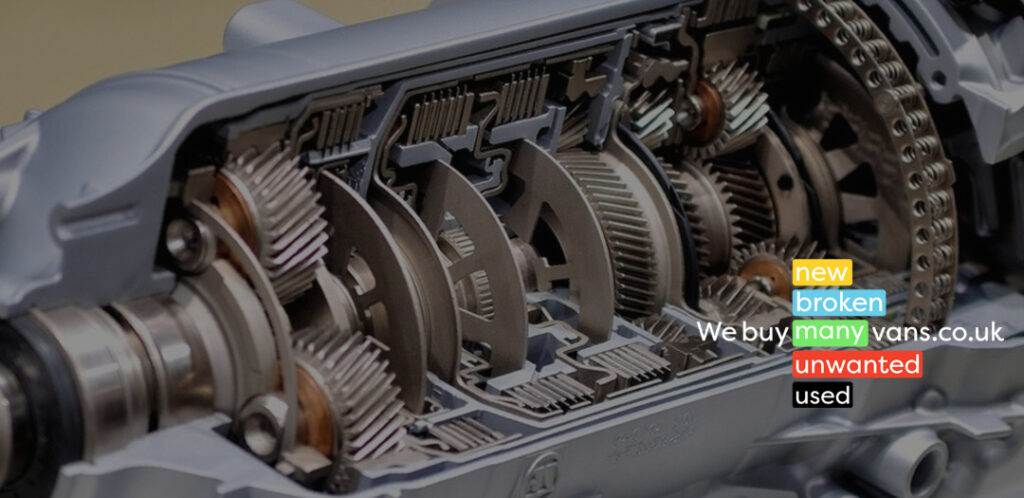
A faulty gearbox can have a significant impact on both your vehicle and wallet. If you ignore warning signs that your gearbox is faulty, it could lead to more serious damage and result in the need for a major repair. This means you should get it checked as soon as possible if you suspect there may be an issue.
One common sign of a faulty gearbox is a dragging clutch, which can cause difficulty shifting gears or even prevent the vehicle from moving altogether. Ignoring this warning sign could mean storing up more serious problems down the line, potentially costing you much more money in repairs.
It’s important to get any necessary repairs done before the damage becomes too severe. The fluid in your gearbox should also be regularly checked and changed if needed – if it looks brown or black, this could indicate an issue with your transmission system. Many sensors are designed to accurately detect potential issues with gearboxes, so hopefully they will alert you before they become serious problems. Don’t be tempted to ignore these warnings – getting them fixed early on means you can get repairs done at a lower cost and potentially save yourself money in the long run.
Warning Signs of a Failed Gearbox: Grinding, Leakage, Burning Smell
Grinding, leakage, and a burning smell are all warning signs of a failed gearbox. If you hear grinding noises when you shift gears or while driving, this could mean that the drive shaft or clutch disc is worn out. Leakage from your gearbox can also be a sign of trouble and should not be ignored. A burning smell coming from your vehicle is another red flag that something is wrong with your gearbox.
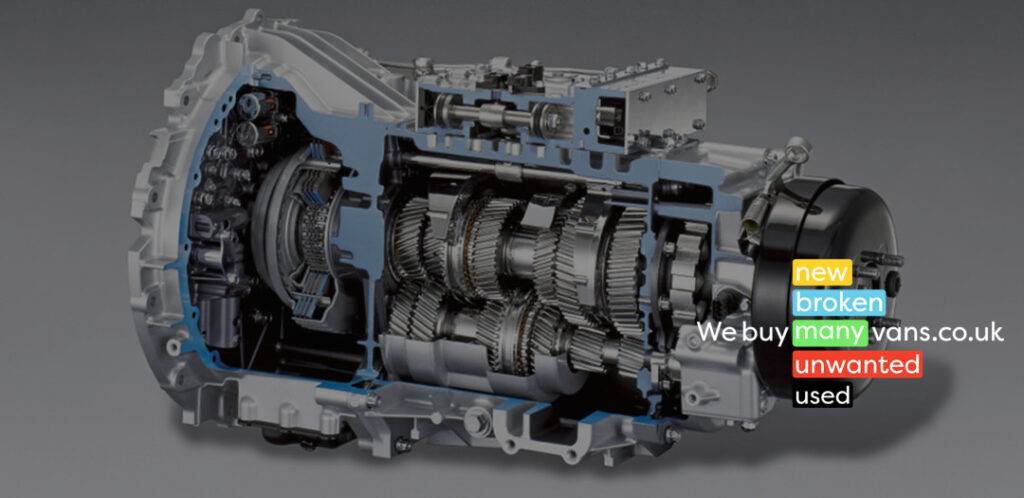
If you experience any of these symptoms, it’s important to get repairs done as soon as possible. Ignoring them can lead to further damage and costlier repairs down the line. Rumbling or hesitation while shifting gears is another sign that there may be an issue with your gearbox. Don’t wait until it’s too late; take action now to prevent more serious damage.
Unlike a broken headlight or flat tire, ignoring problems with your gearbox won’t simply be storing up trouble for later – it will cause wear and tear on other parts of your vehicle too. Getting back on the road after experiencing a failed gearbox requires swift action – don’t delay in seeking professional help to diagnose and fix the problem at hand so you can rev up again without worry about potential dangers lurking beneath the hood!
Getting Back on the Road: Repairing or Selling Your Van with Gearbox Issues
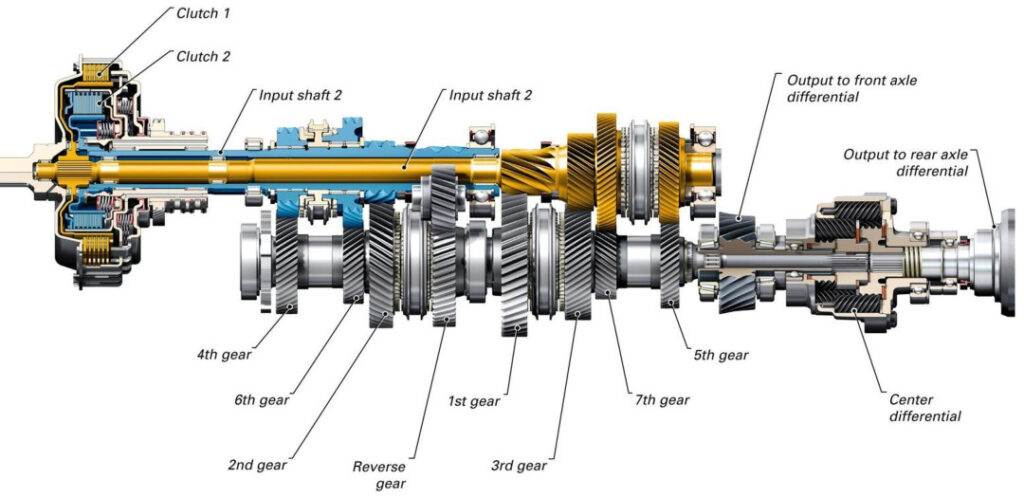
When faced with gearbox issues in your van, you may be left wondering whether to repair or sell it. The decision ultimately depends on the severity of the problem and your budget. If you can afford a replacement gearbox, then repairing might not be worth it. However, if the damage is minor and only requires a few repairs, then fixing it could save you money in the long run.
One sign that your gearbox needs attention is when you hear clunking noises coming from under your vehicle. This could indicate that there’s an issue with selecting a gear or slipping out of gear altogether. You may also experience shaking while driving or notice noise and vibration while shifting gears.
Another indication that something is wrong with your gearbox is humming or buzzing sounds emanating from beneath the van. These noises typically occur at higher transmission levels and may mean that bearings are worn out or damaged. In some cases, this issue can be fixed by replacing just one bearing; however, more severe problems will require a complete overhaul of the system.
Regardless of whether you decide to repair or sell your van with gearbox issues, getting back on the road should be your top priority. A faulty gearbox can cause serious accidents if left unchecked for too long. So don’t wait until it’s too late – seek professional help as soon as possible to get you back behind the wheel safely!
Gearbox Failure Frequently Asked Questions
Common causes of gearbox failure include wear and tear, lack of lubrication, high mileage, and overheating.
Signs that your gearbox is failing and needs repair include difficulty shifting gears, strange noises coming from the transmission, vibrations, and slipping gears.
It is important to address gearbox issues early to prevent further damage, reduce the risk of a breakdown, and avoid costly repairs.
You can tell if your gearbox is damaged by checking for signs of wear and tear, unusual noises, and difficulty shifting gears.
Symptoms of gearbox bearing failure to keep an eye on include whining or grinding noises, difficulty shifting gears, and vibrations.
Lubrication helps prevent gearbox problems by reducing friction, heat, and wear on the transmission components.
It depends on the severity of the damage and the cost of repair versus replacement. In some cases, it may be more cost-effective to replace the gearbox.
A faulty gearbox can severely impact your vehicle’s performance and lead to costly repairs. Addressing gearbox issues promptly is essential to avoid further damage and financial strain. Take action to preserve your vehicle and save on potential expenses.
Warning signs of a failed gearbox include grinding or whining noises, fluid leakage, and a burning smell.
Yes, you can still sell a van with gearbox issues, but it may be more difficult to find a buyer and you may not get as much money for the vehicle.
Sell Your Van Today to We Buy Many Vans
A faulty gearbox can have detrimental effects on both your vehicle’s performance and your finances. Timely action is crucial to prevent further damage and costly repairs.
If you find yourself dealing with a faulty gearbox and considering selling your van, turn to We Buy Many Vans. We offer a convenient solution to sell your van hassle-free.
Our team understands the challenges you face, and we’ll provide a fair offer for your van.
Don’t let a faulty gearbox hold you back – sell your van to We Buy Many Vans and move forward with peace of mind.
Van Troubleshooting Guide: Common Problems from Fuel Pumps to MOT Failures
Here’s the list of van problems in order from most common to least common:
- Fuel Pump Problems
- ECU Problems
- Fuel Injector Problems
- Turbo Engine Problems
- DPF Problems
- Wiring Loom Problems
- Oil Pressure Problems
- Differential Problems
- MOT Failure Vans
- Timing Chain Problems
- Engine Warning Light
- Gearbox Failure
Please note that the order may vary depending on various factors such as the specific van model, maintenance practices, and driving conditions. This list is a general representation of common van problems but may not reflect the exact frequency of occurrence in all cases.